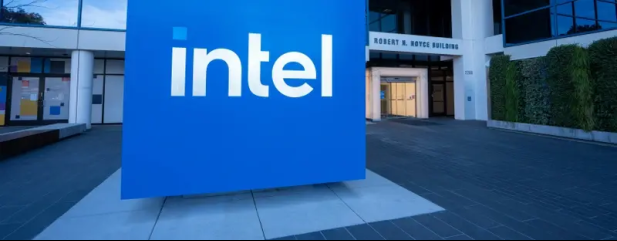Archived article
Please note that tax, investment, pension and ISA rules can change and the information and any views contained in this article may now be inaccurate.
Shock departure of Intel CEO Gelsinger leaves struggling chip maker rudderless

Silicon Valley giant Intel (INTC:NASDAQ) is facing more upheaval after announcing the unexpected retirement of chief executive officer, Pat Gelsinger. Effective immediately, the decision marks a significant shakeup for the chip maker as it grapples with ongoing challenges and competitive pressures in the semiconductor industry.
Gelsinger returned to Intel in February 2021, having previously been its chief technology officer between 2001 and 2009, and was immediately thrust into a debate about its foundry business, which manufactures semiconductors. Several analysts have been calling on Intel to separate its chip design and foundry businesses for years as a way to realise greater shareholder value, but Gelsinger disagreed.
That debate has re-emerged now that Gelsinger has departed, with some reports suggesting he was forced out by the board, which had become disillusioned with his business strategy and execution. Under Gelsinger’s leadership, Intel stock has lost around 60% of its value, wiping more than $150 billion off the firm’s market cap.
In response to Gelsinger’s departure, Citi analysts said it would be ‘in the best interest of Intel shareholders’ if the company ceases its attempts at being a merchant foundry and sells off the business. The bank sees a higher chance of this scenario, given that Gelsinger was a champion of the ailing foundry unit.
But Citi also noted that Gelsinger was a driving force of improving Intel’s overall manufacturing, and that the company could face ‘long-term pain’ if the new CEO did not share his technical expertise. Uncertainty ahead for Intel is presumably why, after an initial bump the stock gave back those gains.
‘It’s always going to rattle investor sentiment when the person at the helm of a company announces they’re stepping down, but when it’s done seemingly without warning and only a few years into what was expected to be a lengthy turnaround plan, that news is seismic,’ said AJ Bell head of financial analysis Danni Hewson.
‘The chipmaker should have been right out in front of the AI boom but somehow ended up on the back foot and attempts to claw back lost ground seem to have been beset with problems. Perhaps a new broom rather than an old hand is what’s needed to really to get to grips with the scale of the issues facing Intel right now.’
DISCLAIMER: Financial services company AJ Bell referenced in this article owns Shares magazine. The author of this article (Steven Frazer) and the editor (Tom Sieber) own shares in AJ Bell.
Important information:
These articles are provided by Shares magazine which is published by AJ Bell Media, a part of AJ Bell. Shares is not written by AJ Bell.
Shares is provided for your general information and use and is not a personal recommendation to invest. It is not intended to be relied upon by you in making or not making any investment decisions. The investments referred to in these articles will not be suitable for all investors. If in doubt please seek appropriate independent financial advice.
Investors acting on the information in these articles do so at their own risk and AJ Bell Media and its staff do not accept liability for losses suffered by investors as a result of their investment decisions.
 magazine
magazine








